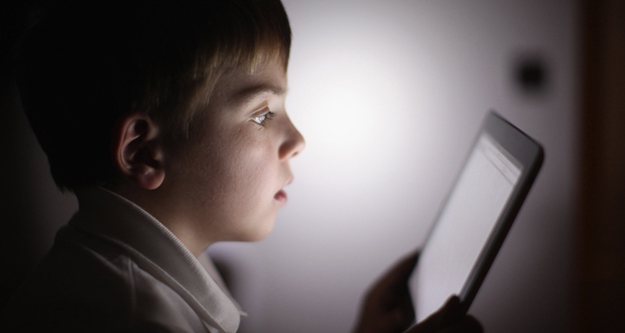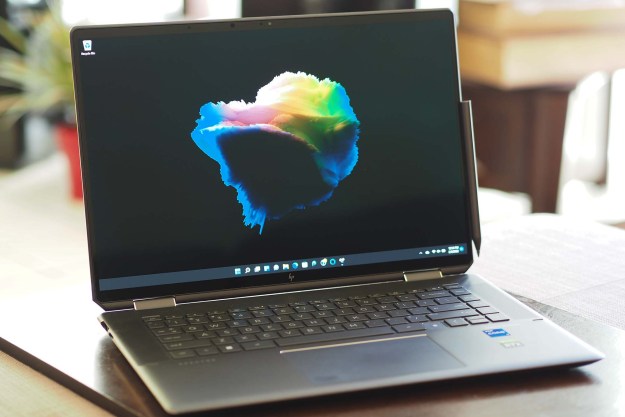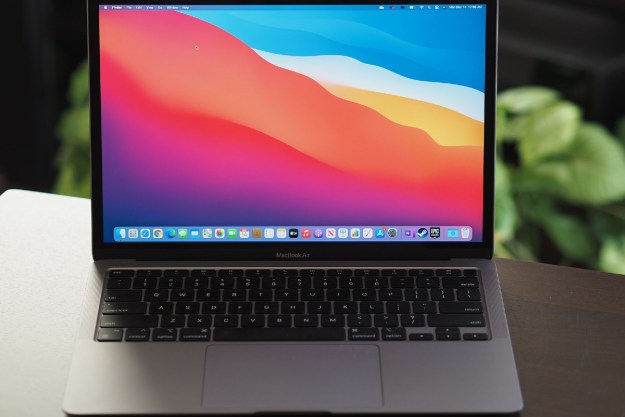 The debate over whether our children are maturing too quickly was reignited last week when the American Academy of Pediatrics published a study which suggests boys are reaching puberty earlier than before. Taking evidence from over 4,000 boys in 41 states, the findings suggested that boys are showing signs of puberty between six months and two years earlier than in past studies. Back in 2010, a similar study of girls in the Journal of Pediatrics revealed that they are also showing signs of puberty earlier than they did in the past – some as young as seven years old.
The debate over whether our children are maturing too quickly was reignited last week when the American Academy of Pediatrics published a study which suggests boys are reaching puberty earlier than before. Taking evidence from over 4,000 boys in 41 states, the findings suggested that boys are showing signs of puberty between six months and two years earlier than in past studies. Back in 2010, a similar study of girls in the Journal of Pediatrics revealed that they are also showing signs of puberty earlier than they did in the past – some as young as seven years old.
While these studies are finding evidence that children are maturing faster physically, they are less certain on the causes. While factors like higher caloric intake definitely come into play, there’s also a popular conception that technology may play some roles as children are bombarded with graphic sexual images and violence through TV, video games, and the Internet.
But are kids really growing up faster in the glow of omnipresent ultra-connected screens, or has paranoia led us to blame what might be one of the greatest assets to our children?
The sedentary lifestyle
Perhaps the most well documented, and seemingly obvious, negative impact of technology on our kids is the growing obesity problem. In the last 50 years, the childhood obesity rate in the U.S. has soared, and according to the American Heart Association, one third of American kids are overweight or obese. A combination of diet and lack of physical exercise is to blame and technology is seen as a major reason why kids are sitting for long periods of time and generally exercising less than their parents and grandparents did.

Social media and cyberbullying
According to a recent study commissioned by Care.com, there is another technology-related concern that looms even larger in most parent’s minds, and that’s cyberbullying. It found that 62 percent of parents thought “that increased use of texting, social media activity and the playing of more violent video games are resulting in meaner behavior among kids,” and 30 percent of parents of children between 12 and 17 years-old “fear bullying and cyberbullying over kidnapping, domestic terrorism, car accidents, suicide or any other incident.”
Is it a legitimate fear? Is social media necessarily negative? We consulted Dr. Larry Rosen, Professor and past Chair of Psychology at California State University, and an international expert in the psychology of technology.
“I do believe that with social media now reaching younger and younger kids they are getting more practice communicating with others and this can be a good thing,” Rosen says. “On the other hand, they are getting less practice communicating face to face and are missing out on learning how to interpret all of those critical nonverbal cues that make us understand language and conversation.”

Social media is a two-way street. A Pew Research Center report found that 77 percent of teens (aged 12 to 17) use social media and while 69 percent of them say “people are mostly kind,” 88 percent have witnessed people being “mean or cruel.”
Research on the long-term effects of learning social skills online is still coming in, but Rosen doesn’t believe it has to be a bad influence. “Teens who spend more time on social media can learn how to be more empathic by practicing empathy online and then transferring it to situations offline,” Rosen says. “That is a good thing! Yet there are still other situations that may lead to negative behaviors such as being rude and mean online and transferring this to the real world.”
Technology in education
You won’t find a true consensus on many issues when it comes to technology and children, but the impact on education is generally seen as positive. Besides bringing interactivity into the classroom, you simply cannot argue with the benefits of assistive technology for children with all kinds of disabilities. The efficacy has been well-established by a number of studies over the last few years.
You’ll also find a wealth of interesting studies, such as those at the Center for Children & Technology, that reveal the potential benefits of using technology in education to engage children. Rosen concurs. “As far as learning goes, I think technology actually can aid their learning and allow them to be engaged by the technology and develop their own style and pace.”
Is parental responsibility enough?
One of the major issues with children and technology revolves around their potential exposure to inappropriate material. Unfettered access to the Internet cannot be good for any child. Trying to emulate pop stars in music videos or being exposed to sexually suggestive adverts on TV is enough to worry many parents. Beyond that there’s Internet porn and clear battle lines between those who favor some form of mandatory censorship, and campaigners for Internet freedom.
Presidential candidate Mitt Romney said back in 2007, “If I am President, I will work to make sure that every computer sold into the home has an easy to engage pornography filter so that every parent can protect their child from unwanted filth.” In the UK, the government recently completed a consultation on porn blocking and some people are pushing for an “opt-in” system, whereby you would have access blocked by default and have to contact your ISP to ask them for access to adult content. Is legislation really the answer though?

The ultimate responsibility for what kids are being exposed to has to rest with parents. Speaking to the Telegraph on this issue, a Google spokesperson put it like this, “Laws alone can’t teach kids to cross the road. The same is true of learning to be safe online. We work with government and child safety organizations to promote sensible legislation and have developed technology, including Google Safe Search and the Family Safety Centre, that parents can use to protect their children online.”
No easy answer
As a tech writer I’m an evangelist for new devices and services ,and I’m convinced they can be good for our children. As a parent I’m concerned about what my kids will be exposed to, especially beyond the family home where I can’t exert as much control. Ultimately I see tech as a set of tools; it cannot be to blame simply because it is possible to misuse it. It’s our responsibility to encourage our kids to exercise, to support their education, and to talk to them about the dangers of the wider world.
It’s tough for a generation getting used to tech and constant Internet access to imagine what it’s like for children growing up in a world where these devices and services are ubiquitous. One of the nicest ways to look at it, and one of the most encouraging, is to listen to children themselves. There’s a series of great studies at Latitude about how kids are reacting to and learning about technology. Like it or not, technology is a fully integrated part of most kid’s lives nowadays, and it’s not going away.
Kids are overwhelmingly positive. They are less jaded and cynical than many adults, and they don’t see barriers to solutions in the same way we do. Maybe a truly useful debate on this topic should include them. They may have more to contribute than we realize.
Where do you stand on the topic? Whether you’re a parent, adult or child – post a comment and weigh in.
[Image credit: Child with iPad: Canada.com; Children using a tablet: wavebreakmedia/Shutterstock; Cyberbullying: NLshop/Shutterstock; Computer padlock: Paul Fleet/Shutterstock]


